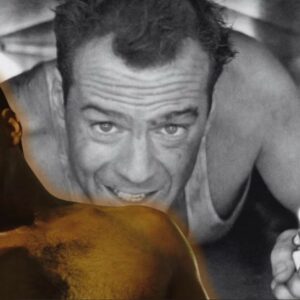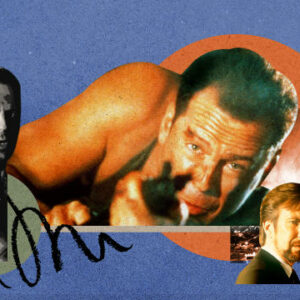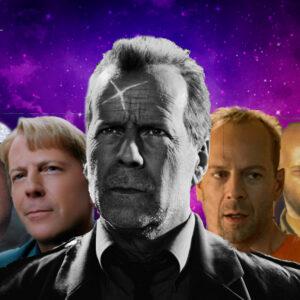Cillian Murphy has emerged as one of the most distinctive and influential actors of his generation, leaving an indelible mark on contemporary cinema. Known for his chameleonic abilities and profound depth, Murphy’s career spans over two decades and includes a series of pivotal roles that have both shaped and mirrored the evolution of modern film trends. This article delves into the various dimensions of Murphy’s influence, from his early career to his current projects, highlighting how he has redefined genres and established new benchmarks in the industry.
Early Career and Breakthrough
Cillian Murphy’s career began with a series of small but significant roles in Irish theater and television. His early work showcased a raw talent and an intense commitment to his craft, setting the stage for what would become a remarkable career. Murphy’s breakthrough came with the 2002 film 28 Days Later, directed by Danny Boyle. In this post-apocalyptic thriller, Murphy played Jim, a character who awakens in a deserted London to find the world ravaged by a deadly virus. His performance was not just a revelation of his acting skills but also a game-changer for the zombie genre. Murphy’s portrayal was both haunting and deeply human, offering a fresh take on the genre and earning him widespread acclaim.
Following 28 Days Later, Murphy continued to capture the attention of audiences and critics alike with his role in The Wind That Shakes the Barley (2006). In this historical drama directed by Ken Loach, Murphy played Damien, a young man caught in the turmoil of the Irish War of Independence. His performance was noted for its emotional depth and complexity, further establishing Murphy as a versatile actor capable of handling a wide range of characters.
Versatility and Range
One of Murphy’s most defining characteristics as an actor is his extraordinary versatility. He has effortlessly transitioned between genres, from intense dramas and thrillers to sci-fi and action films. This ability to adapt and excel in various roles has not only showcased his range but has also influenced how modern cinema approaches character development and genre blending.
In the realm of drama, Murphy’s performance in Breakfast on Pluto (2005) stands out. Portraying a transgender woman navigating a turbulent period in Ireland, Murphy delivered a sensitive and nuanced portrayal that was both groundbreaking and thought-provoking. The film’s exploration of gender identity and societal norms was brought to life through Murphy’s compelling performance, reflecting his capacity to tackle complex, socially relevant themes.
Murphy’s foray into science fiction came with the Inception (2010) and Dunkirk (2017), both directed by Christopher Nolan. In Inception, Murphy played Robert Fischer, a pivotal character whose emotional journey is central to the film’s narrative. His role, though secondary, was crucial in driving the film’s intricate plot and thematic exploration of dreams and reality. In Dunkirk, Murphy’s portrayal of a shell-shocked soldier added a layer of human vulnerability to the epic war narrative, highlighting his ability to convey deep emotional resonance within the constraints of a large-scale film.
Iconic Collaborations
Murphy’s collaborations with directors such as Christopher Nolan and Danny Boyle have been instrumental in shaping his career and influencing contemporary cinema. His work with Nolan has been particularly noteworthy, as it has consistently pushed the boundaries of genre and storytelling.
In The Dark Knight Trilogy, Murphy’s portrayal of the Scarecrow was a memorable contribution to the franchise’s darker, more complex depiction of Gotham’s villains. His role, though not as central as others, added a distinctive edge to the films, and his character’s appearances created a thematic thread that linked the trilogy’s narrative arcs.
Murphy’s partnership with Danny Boyle, on the other hand, has resulted in some of the most innovative and genre-defining films of the 21st century. Boyle’s 28 Days Later was a seminal work in the zombie genre, and their collaboration on Sunshine (2007) further demonstrated Murphy’s range as he took on the role of Cillian Murphy in a high-stakes sci-fi drama about a mission to reignite the dying sun. Boyle’s direction and Murphy’s performance together crafted a visually and emotionally impactful experience, setting new standards for science fiction cinema.
Impact on Genre and Style
Cillian Murphy’s impact on genre and style cannot be overstated. His approach to psychological thrillers and action films has left an indelible mark on these genres, often introducing new layers of complexity and innovation.
In psychological thrillers, Murphy’s performances have often brought a unique blend of intensity and introspection. In films like Red Eye (2005) and Peacock (2010), his ability to embody characters with psychological depth and nuance has elevated the genre, pushing it beyond traditional boundaries. His presence on screen often brings an added dimension to the narrative, allowing for a deeper exploration of themes such as fear, identity, and morality.
Murphy’s influence on action films is equally significant. His role in Inception and Dunkirk exemplifies how he has contributed to the genre’s evolution by bringing a more nuanced and emotionally grounded approach to action sequences. Instead of relying solely on physicality, Murphy’s performances often involve a psychological or emotional component that adds depth to the action, making it more impactful and memorable.
Fashion and Persona
Beyond his roles on screen, Cillian Murphy’s influence extends to fashion and public persona in cinema. His distinctive style and on-screen presence have set new trends in how characters are portrayed and how actors are branded.
Murphy’s look—characterized by his striking features, intense gaze, and often understated wardrobe choices—has become iconic in its own right. His ability to embody various personas, from the brooding Scarecrow to the charismatic lead in Peaky Blinders, has influenced how actors approach character design and fashion within the industry. His style often reflects the psychological and emotional dimensions of his characters, setting trends in how modern cinema interprets and visualizes character identity.
In Peaky Blinders (2013–2022), Murphy’s portrayal of Thomas Shelby became a cultural phenomenon. The character’s period-appropriate yet timeless fashion sense, combined with Murphy’s compelling performance, resonated with audiences and influenced contemporary fashion trends. The show’s depiction of early 20th-century gangster culture, coupled with Murphy’s modern take on historical fashion, has inspired both screenwriters and designers to rethink how historical and contemporary styles can be intertwined.
Current Trends and Future Influence
As of 2024, Cillian Murphy continues to be a significant force in cinema, with his recent roles reflecting and shaping current trends. His involvement in high-profile projects, including Oppenheimer (2023), has demonstrated his continued relevance and adaptability in an ever-evolving industry. His portrayal of J. Robert Oppenheimer in Christopher Nolan’s biopic is a testament to his ability to take on complex, real-life figures with depth and authenticity.
Looking ahead, Murphy’s future influence on the industry is likely to be profound. His ongoing collaboration with visionary directors and his commitment to diverse and challenging roles suggest that he will continue to push the boundaries of what is possible in film. His impact on genre conventions, character portrayal, and actor branding will likely inspire a new generation of filmmakers and actors, ensuring that his legacy in modern cinema remains both vibrant and enduring.
Conclusion
Cillian Murphy’s contributions to modern cinema are both extensive and profound. From his early career breakthroughs to his role in shaping contemporary film trends, Murphy has consistently demonstrated a remarkable ability to transform and elevate the genres and characters he portrays. His collaborations with iconic directors, his impact on genre and style, and his influence on fashion and persona all highlight his unique position in the film industry. As he continues to evolve and explore new horizons, Murphy’s legacy as one of the most influential actors of his time is firmly established, and his ongoing influence promises to shape the future of cinema for years to come.





